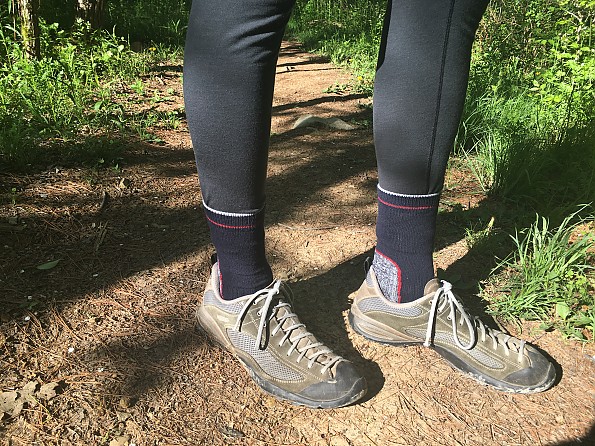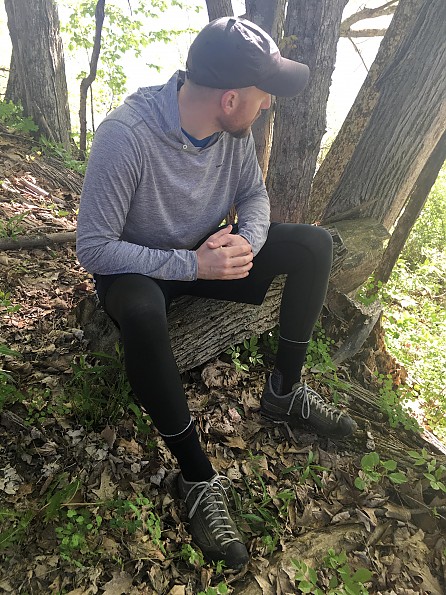Outdoor Research Alpine Onset Bottoms
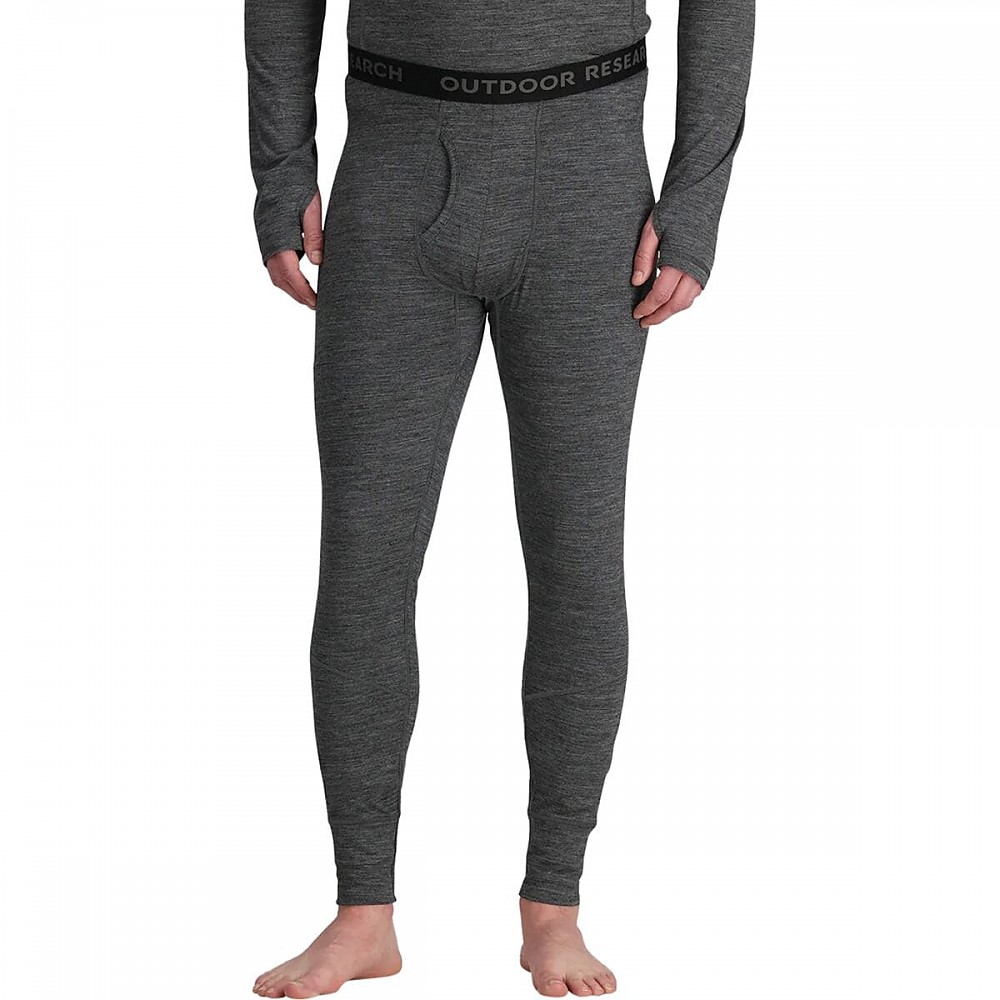
The Outdoor Research Alpine Onset Bottoms are soft on the skin and easy to maneuver in. They're best when on the move in cool/chilly temps like hiking or bike riding, and they are flexible enough for highly active pursuits.
Pros
- Soft
- Adaptable
- Controls odors
- Bonus: Very comfortable to sleep in
- OR's Infinite Guarantee for lifetime of product
Cons
- Short inseam, lacking a long option
- Not warm enough below freezing
Conditions and Temperatures:
I tested the Alpine Onset baselayer bottoms, along with their crew top counterpart, the Outdoor Research Alpine Onset Crew top. These items are part of Outdoor Research's Alpine Onset collection, which includes an array of men's and women's layers.
I’ve worn the OR Alpine Onset Bottoms for five months through the fields and forests of central Pennsylvania while hiking, camping, hunting, mountain biking, and for general everyday purposes. Temps have ranged from -18°F to 60°F (-28°C to 15.5°C), but based on my experiences, these baselayer bottoms are best suited for at or above freezing temps (32°F/0°C or above).
Interestingly, OR does not claim a temperature rating or make mention of a material weight, but I would consider them more of a lightweight baselayer for moderately cold temps and not necessarily for frigid trips. On the high side of the range, anything above 50-55°F (10-13°C), and they become a little too warm, especially if humidity is involved.
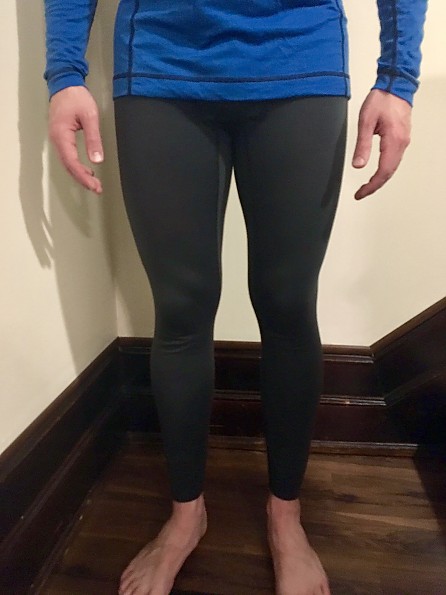
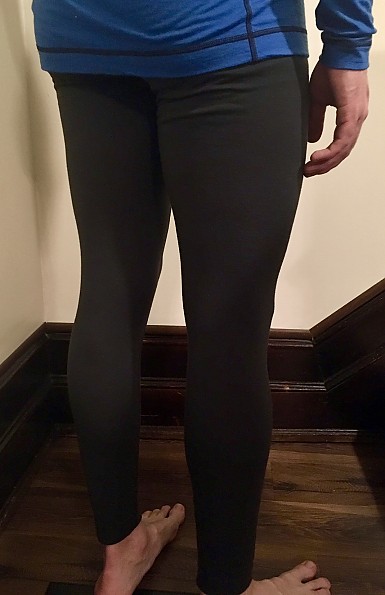
Tester Measurements:
- Height: 6'2" (1.88m)
- Waist: 32.5"
- Inseam: 34"
- Size tested: Medium
Fit and Comfort:
The OR Alpine Onset Bottoms are a trim fit baselayer, providing a next-to-skin fit. Unlike the crew top, which felt much looser, the bottoms are truly trim fit, but not restrictive or too snug. Many baselayer pants often give me a sense of leg claustrophobia after a couple hours of use, but not these ones. I can, and have, worn these all day without getting that dreaded feeling of needing to escape to let my legs breathe. I think that is due to a combination of comfortable material and breathability.
Like many pants on the market, I struggle to find inseams that are long enough for me with a waist that fits. OR only offers these pants in a 31-inch seam, which is three inches shorter than my measured inseam. I often solve this problem by wearing crew-length or longer wool socks to cover my exposed ankles. I’d love to see a longer inseam option available for these baselayers. Some companies are offering this feature and I'd love to see Outdoor Research join the party.
I’ve really come to enjoy sleeping in this baselayer, along with its counterpart top (OR Alpine Onset Crew). Together, whether wrapped up in a sleeping bag or even at home, they make for a really soft and comfortable night's sleep.
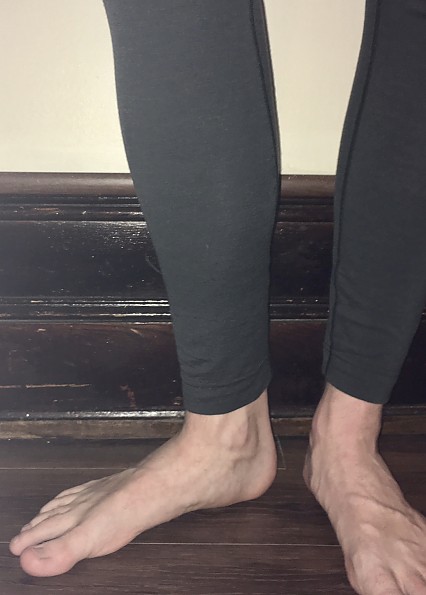
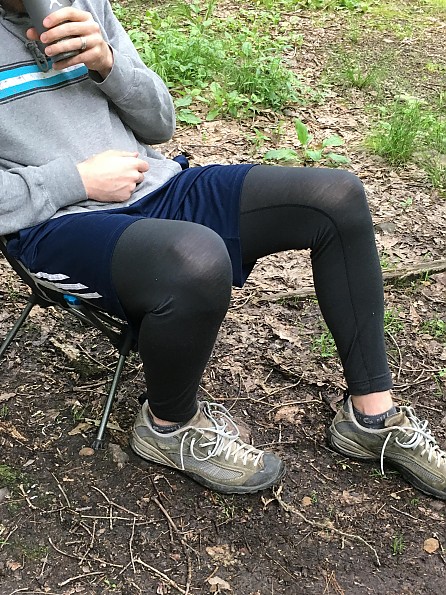
A little short on the inseam. I'd love to see OR offer a long option.
Weight: 5.3 oz (150g)
Layering:
Most of the time, I layered these baselayer pants with the WoopWear! Ultimate Field Pants, Fjallraven Keb Gaiter Trousers, or the REI Adventure Pants. Some exceptions apply, but these have been my go-to outer layers in the winter and spring. The OR Alpine Onset Bottoms fit nicely under each outer layer. When the temps warmed up in the spring, I wore these under a light pair of polyester shorts.

Winter testing, under the hiking pants are the OR Alpine Onset Bottoms.
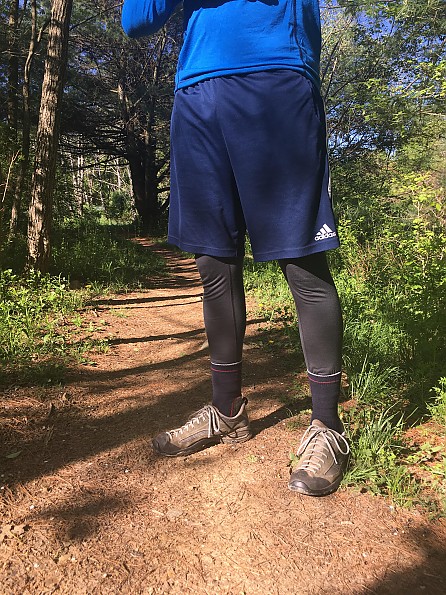
Spring arrived and the pants paired well underneath some lightweight polyester shorts.
Materials:
I’ve always had good luck with merino wool, but never tried a merino blended product quite like this one, with its 83 percent merino wool, 12 percent nylon, and 5 percent spandex. The added stretch and comfort is noticeable, especially when highly active (i.e. cycling or running). Similar to its crew top counterpart (OR Alpine Onset Crew top and the rest of the Alpine Onset collection which features men's and women's baselayers, balaclava, and underwear) this combination of materials makes for a super soft, highly flexible baselayer, without compromising the ability to control odors and provide warmth.
I initially thought that because it had synthetic components, it might not have the same odor fighting superpowers that merino wool typically has, but I was wrong. These bottoms don't get funky smelling nearly as fast as polyester bottoms do.
Caring for the garment is easy. No special detergents required and unlike some wool products, this can be machine dried at a low setting. I've washed them several times, always with cold water and I typically put them through a second cold water rinse. Although they can be machine dried on a low setting, all but one time (I was in a hurry to pack), I line dried them as I do all my wool products and the dry time was favorable.
Although not ideal in really cold temps, I think OR has found the right balance of materials with the Alpine Onset collection for chilly to moderately cold temperatures.
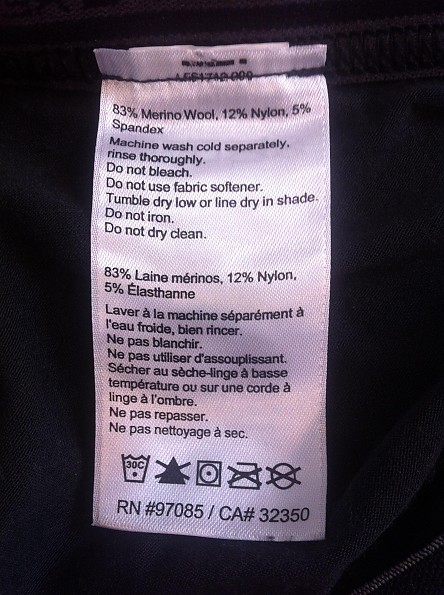
Construction and Durability:
The flat seam construction doesn’t dig in or cause any discomfort. Likewise with the elastic waistband. After three months of regular use, I see no signs of wear and tear or becoming stretched out. The elastic waistband is a little wrinkly since its first wear, but that it doesn't show signs of losing its stretchiness.
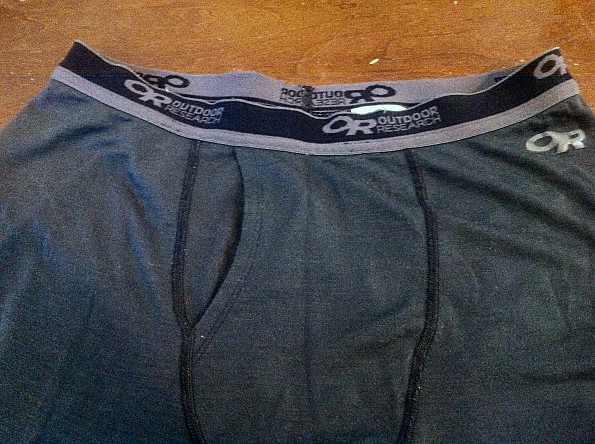
Crotch and waistband
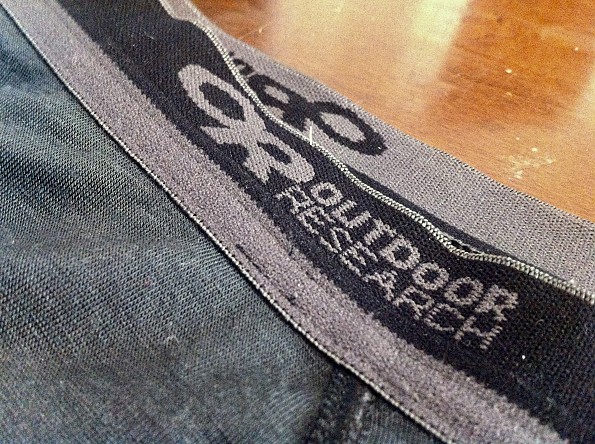
Elastic waistband
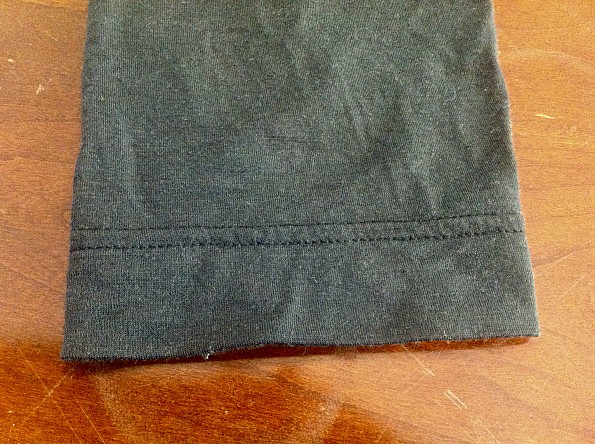
Cuffs at ankles.
Performance:
One of my primary concerns with any baselayer is whether or not it retains heat without retaining moisture. I need a cold-weather baselayer to keep me warm, but not excessively hot that I start sweating and the moisture gets trapped. While mostly hiking in hunting in the OR Alpine Onset Bottoms, I experienced a pair of baselayer bottoms that do a great job of striking that ever-important balance. Certainly not the warmest baselayer on the market, but in cool or chilly conditions, the bottoms did a nice job of keeping my legs warm and not overheating.
The only time I was wearing the baselayer bottoms and wished I had a thicker layer on was during a day hunting from a stand (i.e. stay as still as you can for as long as you can and wait for the animal to come to you) when the temps, along with wind chill, averaged 0°F to 10°F (-18°C to -12°C). My legs were cold. The thinner baselayer material is best for active pursuits in the cold or warmer temps when inactive.
Recommendation:
I recommend the Outdoor Research Alpine Onset Bottoms to those who are looking for a comfortable and responsive baselayer to be used during moderately cold, active pursuits.
Background
During the winters of the Mid-Atlantic (USA), I regularly wear some sort of baselayer when winter hiking and hunting. During really cold snaps, I even wear a baselayer around the house and to the office. I also tend to wear a lighter baselayer in the fall and springtime.
Source: received for testing via the Trailspace Review Corps
(Sample for testing and review provided by testing and review provided by Outdoor Researcht)
Your Review
Where to Buy
You May Like
Specs
| Men's | |
|---|---|
| Price |
Current Retail: $31.13-$99.00 Historic Range: $31.13-$99.00 |
| Weight |
5.3 oz / 150 g avg weight for size L |
| Inseam |
31 in / 79 cm |
| Fabric |
83% merino wool, 12% nylon, 5% spandex |
| Women's | |
|---|---|
| Price |
Current Retail: $31.13-$89.00 Historic Range: $31.13-$99.00 |
| Weight |
5.33 oz / 151 g avg weight for size M |
| Inseam |
30.5 in / 77 cm |
| Fabric |
83% merino wool, 12% nylon, 5% spandex |


